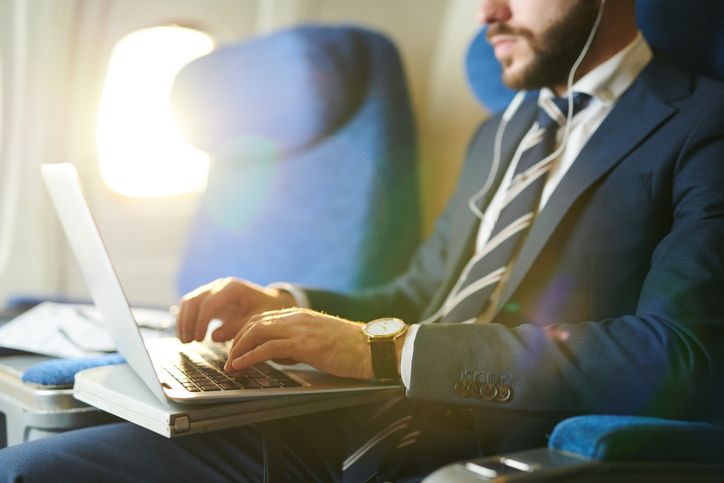
Look familiar?
 Source: Socality Barbie, Instagram
Source: Socality Barbie, Instagram
We all have that one friend (or perhaps you are that one friend) who seems like they’re always traveling and posting photos from their latest adventure on social media. However, accessing your online info while traveling, especially abroad, can open you up to hacking. Learn how you can protect your personal and work data to ensure your #safetravels.
Before you travel
Working at WCM may offer opportunities to travel internationally for conferences, research, and similar occasions. If you’re planning on bringing your work with you, which may include sensitive information, here’s what you can do to safeguard your data:
- Let us know when you’re traveling: Notify your supervisor and ITS of your upcoming trip so your access to WCM services will not be blocked while abroad.
- Plan to take as few devices with you as possible: More devices means more opportunities to steal your device or data.
- Back up your info: If you plan to take your WCM devices with you, backup your documents with CrashPlan. Also, enroll in Duo to ensure you can access WCM applications while abroad.
- Check travel policies and advisories: Cornell University published a Risk Management for International Travel policy that all WCM employees should review before traveling for work. Additionally, regardless of whether your trip is for business or leisure, check the U.S. Department of State Travel Advisories website for alerts, warnings, and travel advisory levels pertaining to your destination to ensure your own personal safety.
- Limit discussing your travel plans online: While it may be tempting to brag online about your upcoming trip, you may be unwittingly giving hackers and scammers too much info about where you’re going and what you’re doing. If you do plan to post about your trip on social media, check your account’s privacy settings to ensure only trusted people can see what you’re putting online.
While traveling
- Keep your devices with you at all times: You may think your device will be fine locked in a hotel safe, but hotel employees do have access to them. Better to keep your device on your person.
- Avoid public Wi-Fi: If you can access a Wi-Fi spot easily, so can a hacker. If you have to use public Wi-Fi at a hotel, airport, café, or other location, do not access any personal or work information, like financial apps, HIPAA or PHI data, and the like. Or, if possible, use a personal hotspot or VPN to further safeguard your internet access.
Traveling to high-risk countries
High-risk countries — namely China, Russia, Iran, and North Korea — represent foreign entities that pose a high risk of compromise or other security attack against the US. While most of the aforementioned tips apply to traveling to these locations, you should take additional precautions:
- Due to stringent policies these countries have about permissible devices that can be brought in, you are strongly encouraged to leave your WCM devices at home.
- Submit a request to borrow a laptop from the library. Some high-risk countries, including China, prohibit the import of encrypted devices, and taking a standard WCM laptop into the country poses a real risk of your device being compromised.
- If possible, you should not access websites containing sensitive information (e.g., financial, health, etc.) while connected to public Wi-Fi networks.
- Chinese officials often block the use of VPN software to protect your privacy on the internet, but you can attempt to use AnyConnect from ITS to access WCM resources while abroad.
October is National Cyber Security Awareness Month, an annual collaborative effort between government and industry to ensure we have the resources you need to maintain your security online. Throughout October, we’ll be sending you tips on protecting your information and avoiding malicious attempts to extract your personal data. View this month's tips.

